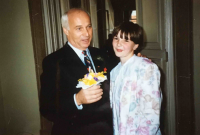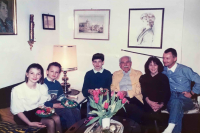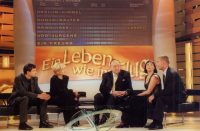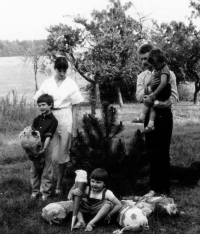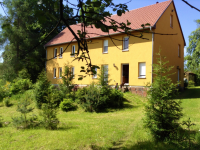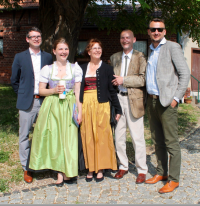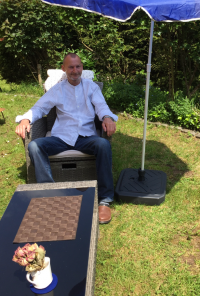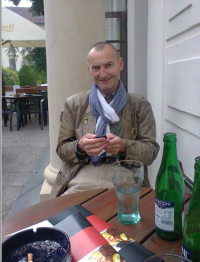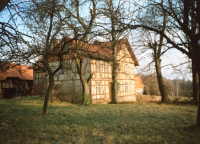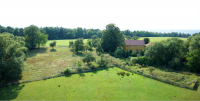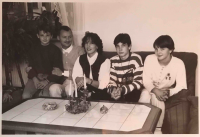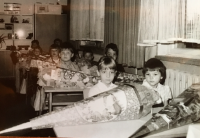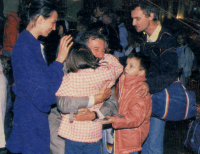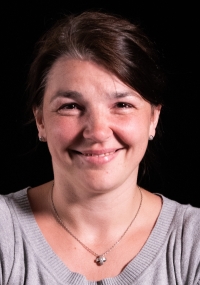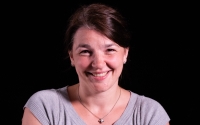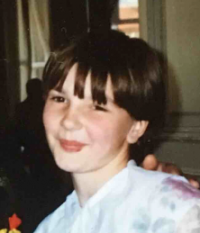It’s not like that you will get just everything, now that you are in the West
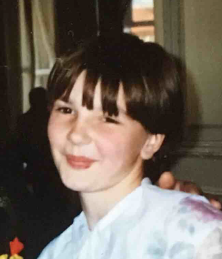
Download image
Katharina Dötterl, née Kuhn, was born on March 23rd 1981 in Eisenach in the former German Democratic Republic (GDR). Her father, Hubert Kuhn, was born on January 29th 1951 in Gerstungen and had been working as a water management expert. Her mother, Susanne Kuhn, was born on July 11th 1959 in Gerstungen and had been working as an office clerk. The witness also has one younger and one older brother. On February 19th 1987, police accompanied with military personnel raided their flat at night. The family had been forcibly relocated from the borderlands to the town of Sömmerda. While her mother was working as a head secretary in the House of Economy her father could no longer work in his profession. As the pressure on the family intensified since early 1987, in 1989, right after the children got their school reports, they went by train to Prague (Praha) via Dresden. They were among the first to reach the Federal Republic of Germany’s embassy in Prague (Praha). Refugees from the GDR were gradually filling the premises of the Baroque Lobkovicz palace, as about fifteen people who had been living there since July were joined by maybe 4000 thousand refugees during the autumn. On September 30th 1989, maybe hundred more people came to the attic flat at the embassy. On the same day, the federal minister of foreign affairs Hans-Dietrich Genscher gave his famous speech from the embassy’s balcony, announcing the refugees from the former German Democratic Republic that they would be allowed to travel to the West. Taking a train via Dresden, the family reached the refugee camp in Henneberg. After that, they had been living near Chiemsee and in the years to come also in Mammendorf, Deggendrof and Hof. At first, witness’ parents made their living as labourers at a garden centre, but soon they found jobs in their profession. Katharina Dötterl graduated in Art history and Religious studies at the university in Erfurt. After that, she had been working in the field of political education. In 2004, she returned home to Lutzberg with her parents and with a family of her own. Since 2018, she has been the director of the Local museum of history in Gerstungen.
